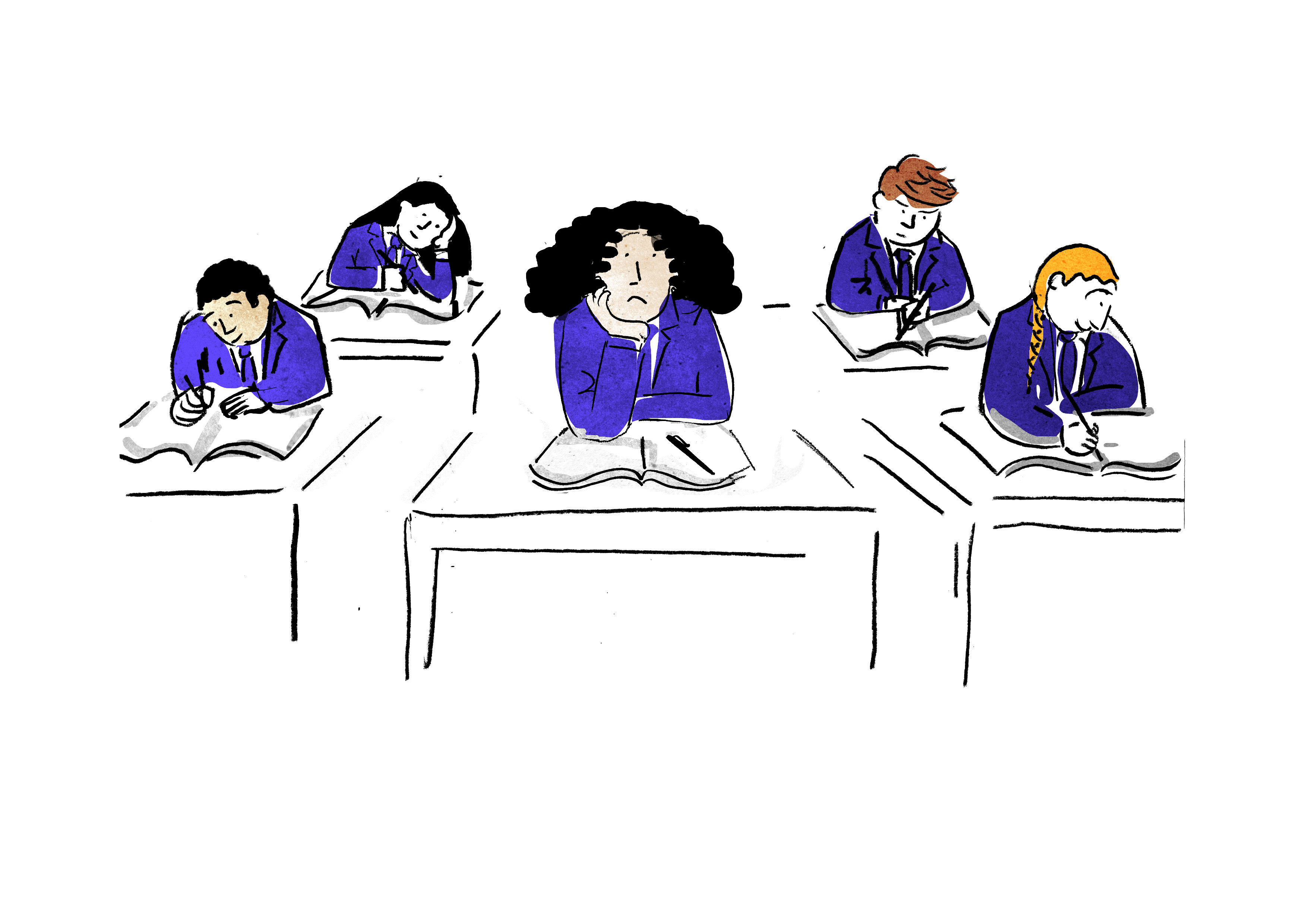The importance of sleep for revising and doing your best in exams has been proven by scientists. One of our tutors, Jack B, has been researching the science of sleep for his PhD at Manchester University. Here he’s written his top reasons why sleep is so important, and how your child can get their crucial 8 hours of shut-eye throughout exam season.
Why is sleep so important?
As well as resting your body, sleep primes the brain for new memories when you wake up. Each day, our brains become saturated with all the new information we learn, and sleep lets us soak these new memories in so they’ll stay there for the long-term. It also works to make the brain less noisy so it’s easier to learn even more new things the next day.
When we’re sleeping, the brain replays the memories we’ve just made. It’s thought that this process is responsible for the strengthening of new information during sleep. One study showed that participants are more likely to start dreaming about playing Tetris if they’ve played during the day, and this was linked to a higher score when they played again the next day!
With all this in mind, if you get more tired as the school term goes on, it’s really important to prioritise your sleep to put you in the position to learn well (and stay happy). While one good night’s sleep won’t suddenly make you remember everything you’ve been taught in the past year, prioritising it with a regular routine will really help with your learning, concentrating and remembering. Sleep is also really important for staying in a happy mood, and when you’re well-rested, you’ll stay more confident and resilient even as exam stress builds up.
A good night’s sleep, every night.
While late-night cramming the night before might have worked with the odd school test, for national exams you need to remember much more than you can learn this way. Once exams have started, panic-revising into the wee hours interferes with memory recall, concentration and, therefore, exam performance the next day. As well as that, the brain is less able to absorb new information late at night, so it’s doubly unhelpful.
Even if you’re putting in the hours through the day, high stress can also interfere with sleep and get in the way of revision. If you work yourself into a tizz with worry, then tossing and turning at night can end up making them less able to concentrate and remember. This can then lead to even more worry, and even less sleep!
To avoid this vicious cycle altogether, laying down a regular routine of 8-10 hours of sleep every night, at the same time, throughout the revision and exam period will put you in a really good position to charge ahead with their studies and do their best when exams finally come around.
Here are our top tips for getting a good night’s sleep, every night:
- Avoid caffeinated drinks after lunchtime, and stick to one a day if you can.
- Switch off smartphones and laptops at least an hour before bed. This helps tell your brain it’s time to wind down.
- Keep roughly the same bedtime every night (we know sometimes a TV show can’t be missed). This helps your body adjust to a routine, so it will be much easier to fall asleep when you want to.
The art of napping
It’s the news teenagers across the country have been waiting for – naps help revision! That said, it’s important to get the balance right between boosting energy and sleeping too much. Napping helps alertness, improves memory and even improves creative problem solving. There’s even evidence that dreaming about a task you’ve been working on during a nap boosts memory for that same task.
Neuroscientists at Harvard University showed this in a recent study. People had to navigate a virtual maze and find a tree at the centre, and the aim was to find it as quickly as possible. Half of the participants were given a chance to nap after completing the maze task, and they wrote down any dreams they had during this time. Those who napped before being tested again were able to find the goal in the maze quicker than those who didn’t nap. The participants who improved the most after a nap were also those who dreamed about the maze.
Now, while it’s hard to control whether you dream or not, taking tactical naps during study leave, at the weekend or after school can be a smart strategic move to boost your child’s revision power. Napping should happen in short bursts (5-15 minutes is ideal). Short naps like this can be easily weaved into a day of revision, they can be timed to coincide with natural dips in energy (such as early or late afternoon). It’s also a smart move to set an alarm to end the nap, as resting for too long in the day can make it harder to sleep at night.
Ask someone who’s a few years ahead


Online lessons can help your teen with tricky topics and study skills
You’re not the first person to go through exams. And a lot of those who have been there, done that, are here to help you too. Our online tutors are all from UK universities, so they sat the same exams as you, and made it through with flying colours. In lessons with them, they can mentor you, help you understand hard topics, and plan out your revision with you so you can stress less and learn more. Have a browse here and suggest it to a parent if you’d like some extra help.
Good luck, and sweet dreams!




